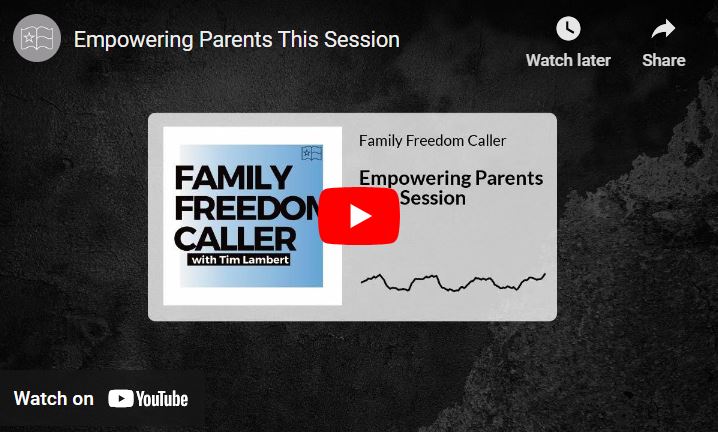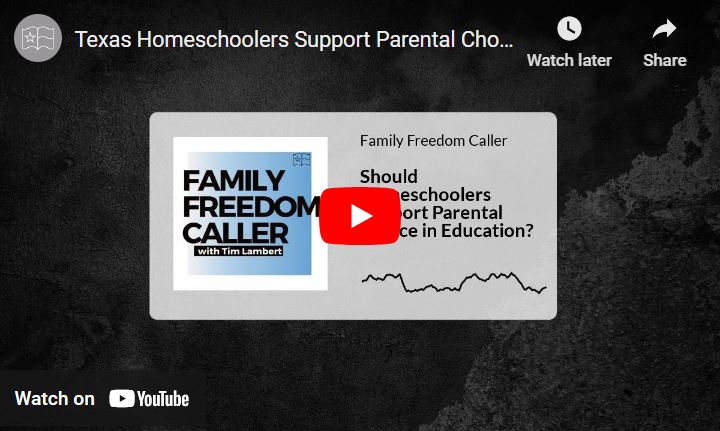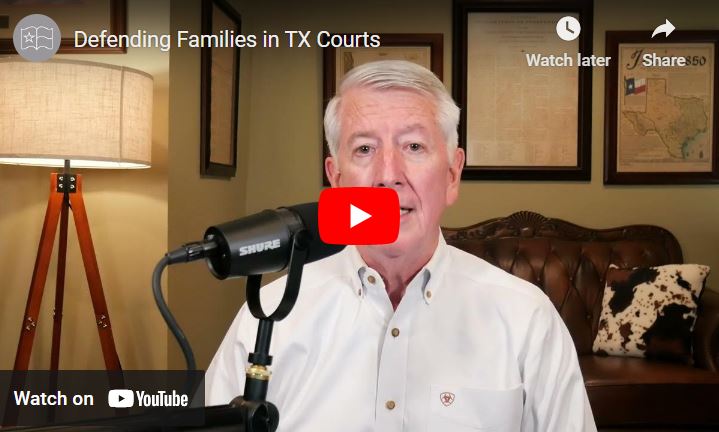“Fundamental liberty” is how the Supreme Court of the United States of America (SCOTUS) referred to the involvement of parents in the care and upbringing of their children.
This statement was made in 2000 when the SCOTUS rendered a landmark ruling in favor of parental rights.
So if parental rights are a fundamental right (meaning they are protected by the U.S. Constitution), then why do courts overrule the decisions of “fit” parents? Why did a state of Texas district court give partial custody of Ann to her mother’s ex-boyfriend over her father’s objections simply because the ex-boyfriend wanted custody?
The short answer to this complicated question is that many attorneys and judges simply don’t know what the SCOTUS has said about parental rights.

The U.S. Constitution protects a fit parent’s right to raise his or her child. The SCOTUS has ruled that, in order to protect this constitutional right, courts must presume from the beginning of a case that a parent is fit and that the parent acts in the best interests of his or her child.
However, many attorneys and judges do not look to the SCOTUS rulings when litigating family law cases. Instead, they only look to the Texas Family Code — which requires the best interests of a child to be the primary consideration in family law cases.
Rather than presuming that a fit parent’s decisions are in the best interests of the child (like SCOTUS case law requires them to do), courts often substitute their own opinions about what the best interests of a child are for the decisions of the parent.
The basic problem isn’t that courts act with poor intentions; it’s just that many courts don’t know what the constitutional rules are for determining a child’s best interests.
In order to remedy this problem, THSC is working on a bill called the Family Unity Act this legislative session that would put the constitutional rules for determining a child’s best interests directly into the Texas Family Code so that judges and attorneys can easily access them.
We believe that a loving family home is the best environment for children. If you do too, please stay informed and be prepared to contact your legislators in support of CPS reform legislation.
Text “TXHOMESCHOOL” now to 919191 to receive legislative alerts about the Family Unity Act and other bills that THSC is working on as we continue Keeping Texas Families Free!
“Fundamental liberty” is how the Supreme Court of the United States of America (SCOTUS) referred to the involvement of parents in the care and upbringing of their children.
This statement was made in 2000 when the SCOTUS rendered a landmark ruling in favor of parental rights.
So if parental rights are a fundamental right (meaning they are protected by the U.S. Constitution), then why do courts overrule the decisions of “fit” parents? Why did a state of Texas district court give partial custody of Ann to her mother’s ex-boyfriend over her father’s objections simply because the ex-boyfriend wanted custody?
The short answer to this complicated question is that many attorneys and judges simply don’t know what the SCOTUS has said about parental rights.

The U.S. Constitution protects a fit parent’s right to raise his or her child. The SCOTUS has ruled that, in order to protect this constitutional right, courts must presume from the beginning of a case that a parent is fit and that the parent acts in the best interests of his or her child.
However, many attorneys and judges do not look to the SCOTUS rulings when litigating family law cases. Instead, they only look to the Texas Family Code — which requires the best interests of a child to be the primary consideration in family law cases.
Rather than presuming that a fit parent’s decisions are in the best interests of the child (like SCOTUS case law requires them to do), courts often substitute their own opinions about what the best interests of a child are for the decisions of the parent.
The basic problem isn’t that courts act with poor intentions; it’s just that many courts don’t know what the constitutional rules are for determining a child’s best interests.
In order to remedy this problem, THSC is working on a bill called the Family Unity Act this legislative session that would put the constitutional rules for determining a child’s best interests directly into the Texas Family Code so that judges and attorneys can easily access them.
We believe that a loving family home is the best environment for children. If you do too, please stay informed and be prepared to contact your legislators in support of CPS reform legislation.
Text “TXHOMESCHOOL” now to 919191 to receive legislative alerts about the Family Unity Act and other bills that THSC is working on as we continue Keeping Texas Families Free!










